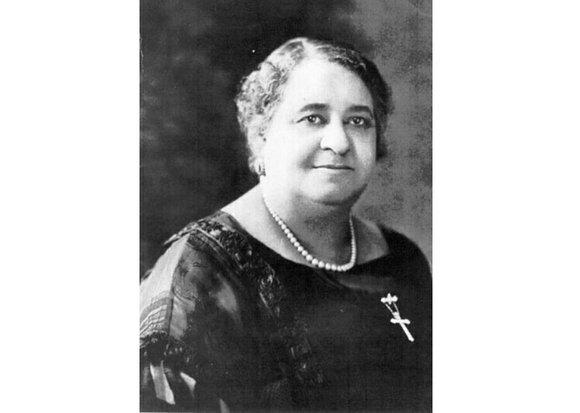City Council greenlights Maggie Walker statue at triangle
Jeremy M. Lazarus | 12/18/2015, 4:33 a.m.
Forget Monument Avenue and Abner Clay Park.
The future statue of Richmond’s great lady, Maggie L. Walker, will stand at the intersection of Brook Road and Broad and Adams streets, the gateway to historic Jackson Ward where Mrs. Walker lived and won acclaim for her entrepreneurial spirit.
Richmond City Council voted 6-1, with two abstentions, Monday night to reconfirm that decision for the third time in 15 years, clearing the way for the project.
The vote also authorized the city to eventually close the short stretch of Brook Road between Broad and Adams streets to create a big enough space for the statue and plaza, rebuffing concerns of some residents and businesses about the impact of the closing.
The vote was a relief to supporters like Melvin Jones, who has led a seven-year campaign for the statue to highlight the woman he idolizes.
“The council did the right thing,” he said.
Mark Ohlinger, director of the city’s Department Planning and Development Review, told council before the vote that the street closure would be needed. He said the 900-square-foot triangular plaza at the intersection would be too small for the Walker monument if the live oak tree that now fills the plaza is included. However, the closure of the street would not happen until the design is approved and construction is to begin, still months away, he said.
A determined council majority rejected appeals to delay the vote on the street closing, even though the vote is the last the council will take on the project to honor Mrs. Walker, best known as the first African-American woman to found and operate a bank.
From now on, the city Planning Commission and its Commission of Architectural Review will be in charge of reviewing and approving the design.
Mr. Ohlinger advocated for the vote, saying approval was needed to ensure the design, engineering and installation could be completed by next November.
Councilwoman Cynthia I. Newbille, 7th District, said even though the project will be out of council’s hands, there will be ample public hearings and citizen comment periods to express themselves on the design.
Councilman Charles R. Samuels, 2nd District, twice tried to get his colleagues to provide a 30-day delay to give the Historic Jackson Ward Association a bit more time to consider the project and the impact of the street closing. His effort failed on a 5-4 vote. He was one of two members to abstain on the final vote.
Councilman Parker C. Agelasto, 5th District, who cast the sole dissenting vote Monday night, also was rebuffed when he urged members to wait to view the design.
Councilman Jonathan T. Baliles, 1st District, who also abstained, found little support when he warned his council colleagues about potential cost overruns. The majority wanted to make sure that the chosen artist, Antonio Tobias “Toby” Mendez, who is to be paid $300,000, knew that the city is committed to providing the space he needs.
Councilwoman Ellen F. Robertson, 6th District, said that Mr. Mendez “deserves to have adequate space so he can adequately plan a memorial for Mrs. Walker.”
Council President Michelle R. Mosby, 9th District, Ms. Newbille, Chris A. Hilbert, 3rd District, and Kathy C. Graziano, 4th District formed the majority approving the project. They were joined by Councilwoman Reva M. Trammell, 8th District, who earlier supported Mr. Samuels’ effort for a delay.
In other business, the council voted 9-0 to ban Richmond residents from placing sofas and other indoor furniture on porches or in yards and subject them to $100 fines for failing to place such furniture indoors.
Council also backed Mr. Hilbert’s proposal to designate a small parcel of city property in Providence Park as “Lieutenant Ozell Johnson Memorial Park.” The park at 241 E. Ladies Mile Road is the first in Richmond to be named for an individual police officer. Lt. Johnson, who died in 1982, was a pioneer in community policing.







